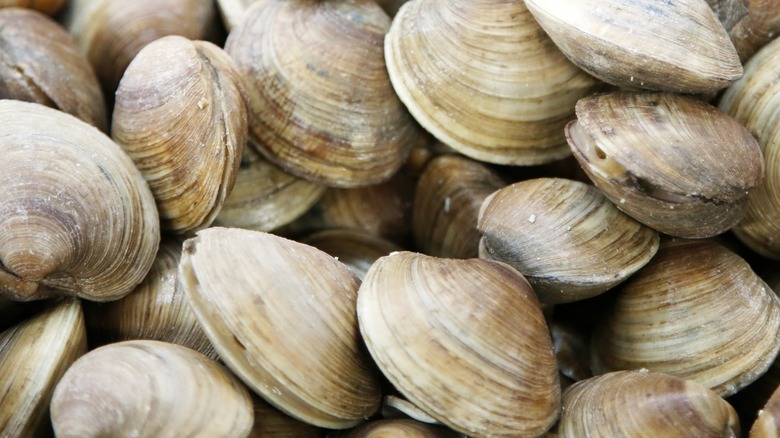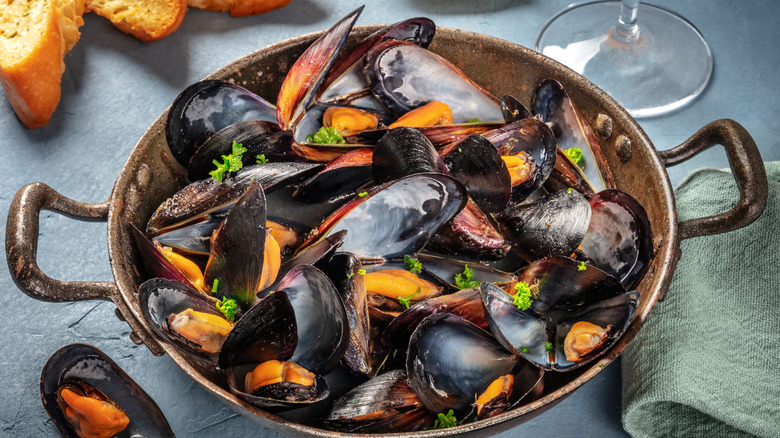The More Affordable Seafood Alternative To Fresh Clams
Delicious as it may be, seafood can be pricey. Although it's worth treating yourself every now and again, frequently splurging on high-ticket shellfish like clams can take a massive toll on your bank account. Rather than entirely forgoing buying the seafaring protein, there's a less costly alternative that boasts all the goodness of clams without the price tag — because no one should go without velvety chowders and luxurious seafood pasta.
Much like oysters, scallops, and mussels, Sciencing explains that clams are classified as bivalve mollusks, which means that their soft interior is protected by a hard, hinged shell. Closed tightly until they meet some heat, fresh clams open on their own, revealing a meaty inside that tastes a bit briny, somewhat salty, and pleasantly like the sea. While they are a delight for the tastebuds, they aren't for the wallet. So why are clams so darn expensive?
WBUR explains that the skyrocketing cost of clams mainly boils down to the fact that there is such a limited supply (due to more marine predators as waters warm from climate change) coupled with high consumer demand. Fortunately, there is a cheaper alternative for when clams are out of budget.
Instead of clams, opt for mussels
Though many bivalves could stand in for clams, The Guardian recommends buying mussels as they typically sell for a fraction of the price, unlike other costlier substitutions like oysters. Most closely resembling clams, dark and oblong mussels have an almost texturally-identical interior that's tender and chewy. Likewise, mussels also have a similar (yet, mild) sea-kissed flavor, making them easily the best substitute for clams. Plus, just like their rounder companions, cooking remains the same as shells pop open once the mussels are ready to devour.
As for the reasons behind their lower price point, there are actually several answers. Available all year long, Coastal Dream Life explains that mussels can reproduce at rapid rates, keeping up with demand and, consequently, keeping costs low. Since mussel aquaculture also doesn't require any fertilizer or feed, Quartz explains that this also prevents prices from skyrocketing. Not to mention that all of these factors are also what render mussels a more sustainable option when compared to clams.
But, just when you thought that mussels couldn't get any better, there's one more benefit. In addition to ticking all the boxes in terms of profile and price point, Great British Chefs shares that mussels are even healthier, abundant especially in brain-friendly omega-3 fatty acids. With so many elements working in their favor, putting mussels on the menu is a must!

